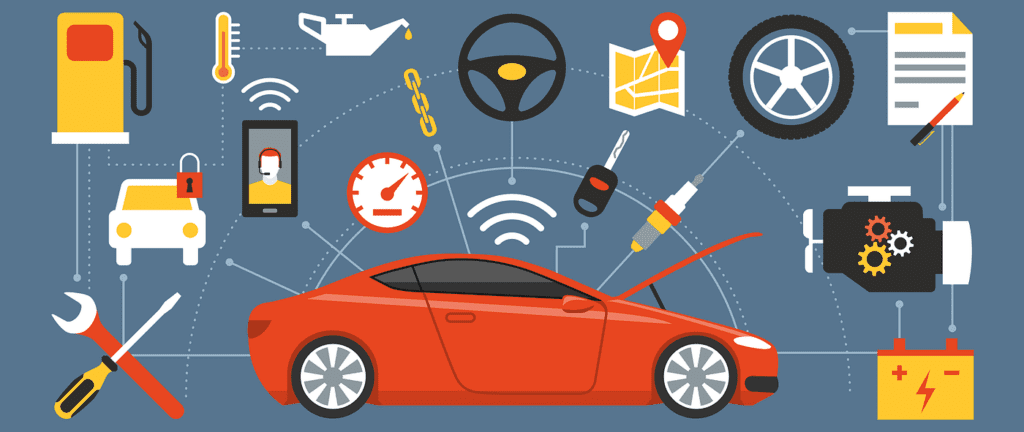Car maintenance is a crucial aspect of owning and operating a vehicle. Regular upkeep not only ensures the safety and reliability of your car but also extends its lifespan, saves you money on repairs, and reduces your environmental impact. Whether you’re a seasoned car owner or a new driver, understanding and practicing proper car maintenance is essential.

key aspects of car maintenance
some key aspects of car maintenance to help you keep your vehicle in top condition.
Oil Changes: Regular oil changes are vital for your engine’s health. Engine oil lubricates moving parts and helps dissipate heat. Over time, oil breaks down and becomes less effective, potentially causing damage to the engine. Consult your car’s manual for the recommended oil change interval, typically every 3,000 to 7,500 miles.
Tire Care: Proper tire maintenance includes checking tire pressure regularly, rotating tires, and ensuring they have adequate tread depth. Correct tire pressure improves fuel efficiency and handling while preventing uneven wear. Rotating tires ensures even wear across all four, extending their lifespan.
Brake Inspection: Brake components, such as pads and rotors, wear down over time and need periodic inspection. Squeaking or grinding noises when you brake, or a pulsating brake pedal, are signs that your brakes might need attention. Regular inspections can prevent costly repairs and ensure your car’s safety.
Fluid Levels: Regularly check and top off essential fluids like coolant, transmission fluid, brake fluid, and windshield washer fluid. Low levels or dirty fluids can lead to engine overheating, transmission issues, and compromised visibility.
Air Filter: A clogged air filter restricts airflow to the engine, reducing fuel efficiency and performance. Replace the air filter according to your car’s maintenance schedule or if it appears dirty.
Battery Maintenance: Clean the battery terminals and ensure they are secure. Check the battery’s voltage, especially in extreme weather conditions, to prevent unexpected breakdowns.
Regular Inspections: Schedule periodic inspections by a qualified mechanic. They can identify potential issues early and provide recommendations for maintenance or repairs.
Wheel Alignment: Proper wheel alignment ensures even tire wear and improves handling. If your car pulls to one side or you notice uneven tire wear, get the alignment checked.
Belts and Hoses: Inspect the condition of drive belts and hoses. Over time, these components can crack or become brittle, potentially leading to engine or cooling system issues.
Lights and Signals: Ensure all exterior lights, including headlights, taillights, brake lights, and turn signals, are working correctly. Proper lighting is crucial for your safety and the safety of others on the road.
Cabin Air Filter: Replace the cabin air filter regularly to maintain air quality inside the vehicle and ensure efficient HVAC system performance.
Cleaning and Detailing: Regularly clean both the interior and exterior of your car. This not only maintains its appearance but also helps prevent rust and corrosion.
Owner’s Manual: Familiarize yourself with your car’s owner’s manual for specific maintenance schedules and guidelines tailored to your vehicle.
Remember that preventive maintenance is an investment in the long-term health and performance of your car. Neglecting it can lead to costly breakdowns and repairs down the road. By staying proactive and following a regular maintenance routine, you can enjoy a safe, reliable, and efficient driving experience while extending the life of your vehicle.

Pingback: Powering Your World: Aapki Battery - Trusted Battery Dealer in Bhopal -